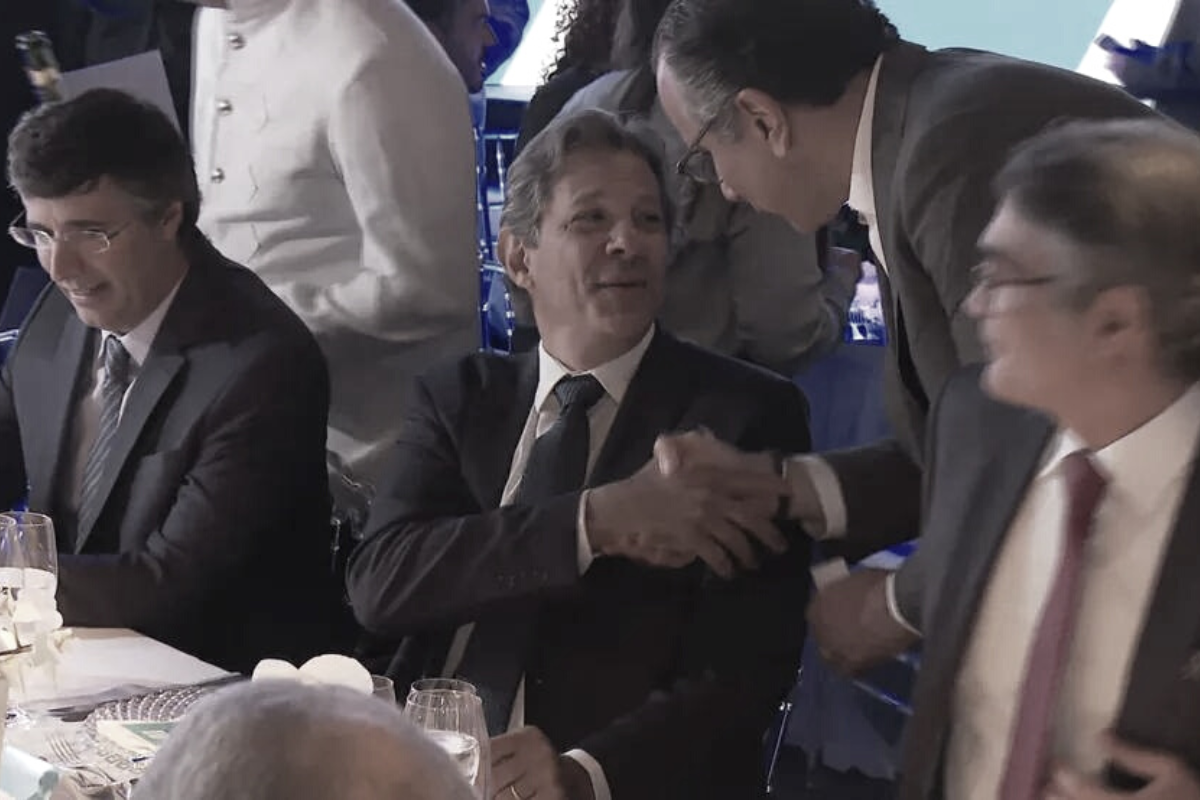The Ibovespa benchmark stock index sank over 1 percent after a meeting between Fernando Haddad — tipped to become Brazil’s next finance minister — and bank federation Febraban. The drop added up to an overall loss of 2.8 percent by 4:55 pm on Friday.
A former mayor of São Paulo with a prior spell as education minister, Mr. Haddad ran for president in the 2018 election, finishing as the runner-up to Jair Bolsonaro. In 2022, he lost the São Paulo gubernatorial runoff to Tarcísio de Freitas, Mr. Bolsonaro’s former infrastructure minister.
Mr. Haddad spoke to bankers on behalf of the president-elect, which was interpreted as being a test of Mr. Haddad’s viability as the head of Lula’s economic team.
The next government’s economic agenda, he said, is centered on four main points.
First, passing a tax reform. Lula should give priority to a bill proposed in 2019, but which has stalled in the House since. It simplifies Brazil’s arcane tax system by merging multiple levies into a single value-added tax (VAT).
Second, Mr. Haddad said that the federal spending cap introduced in 2016 failed to prevent a loss in quality of public spending. He added that Congress should have a large role in drafting the budget, but giving “more transparency” to the process. It was a nod to the so-called “secret budget” put in place by Mr. Bolsonaro, which gives lawmakers a lot of power over the budget by way of opaque grants.
Third, Mr. Haddad highlighted the importance of making credit cheaper. Expanding access to credit was a major policy of the Dilma Rousseff administration (2011-2016), a time most investors do not have fond memories of.
Additionally, it is important to remember that an institutionally independent Central Bank will be headed by orthodox economist Roberto Campos Neto, appointed by Mr. Bolsonaro to serve until the end of 2024.
Under his leadership, the Central Bank said it won’t hesitate to hike Brazil’s benchmark interest rate (currently at 13.75 percent) unless public spending and inflation are tamed in a sustainable manner. If the bank makes good on its warning, the cost of borrowing would increase, not the other way around.
Finally, Mr. Haddad said Brazil should take advantage of the opportunity presented by current challenges such as climate change to increase investment in science and technology for areas such as green energy and the auto industry — which experienced a sharp drop in sales during the first semester of 2022.
Mr. Haddad also indirectly chastised the Bolsonaro administration by saying that the economy “cannot keep growing by [only] 0.5 percent a year.”
Recent data by the International Monetary Fund shows that the Brazilian economy grew on average 1.14 percent a year during Mr. Bolsonaro’s term, underperforming other emerging and Latin American countries.


 Search
Search






































